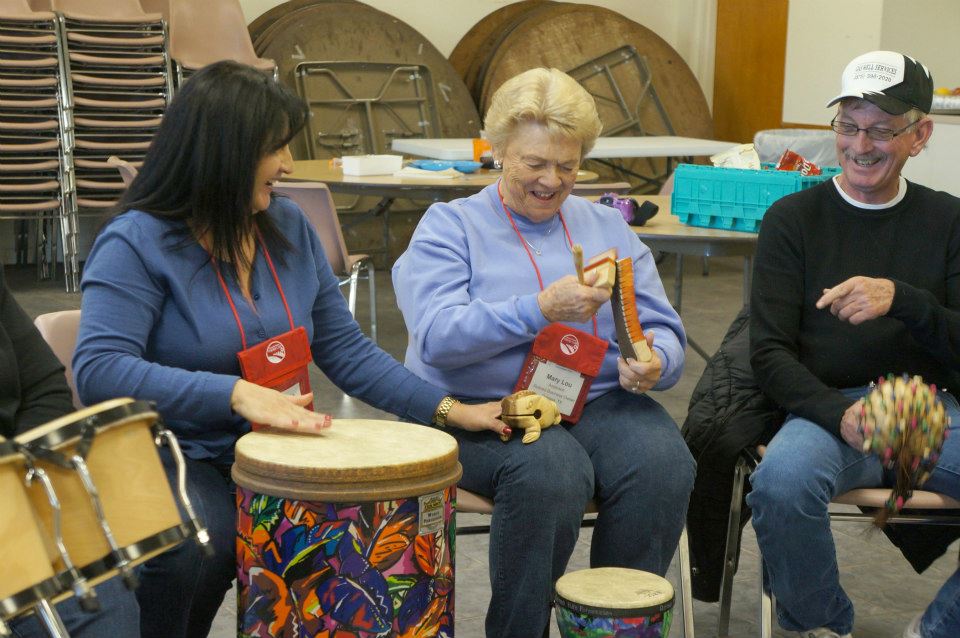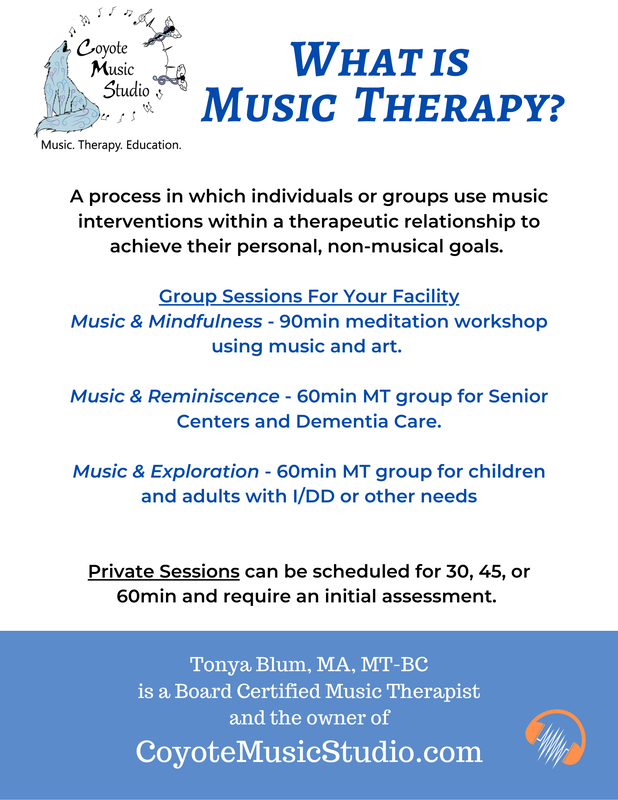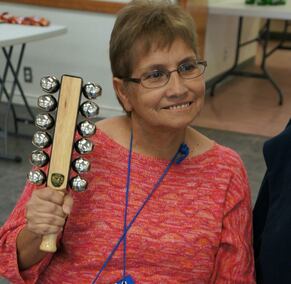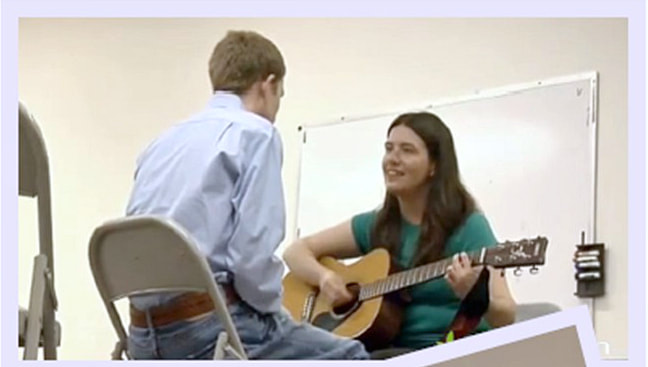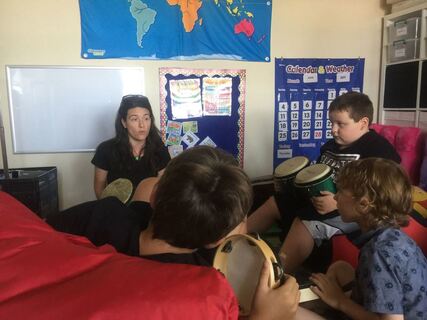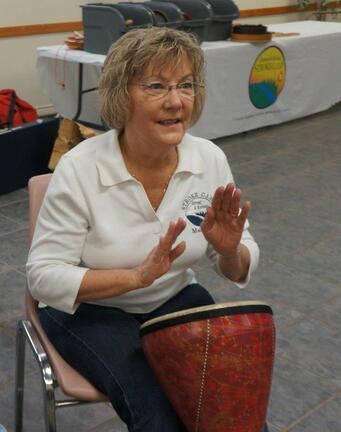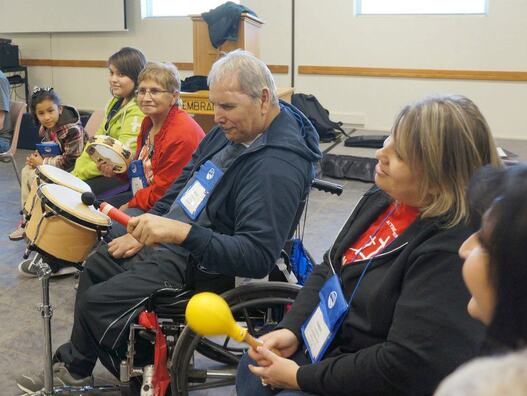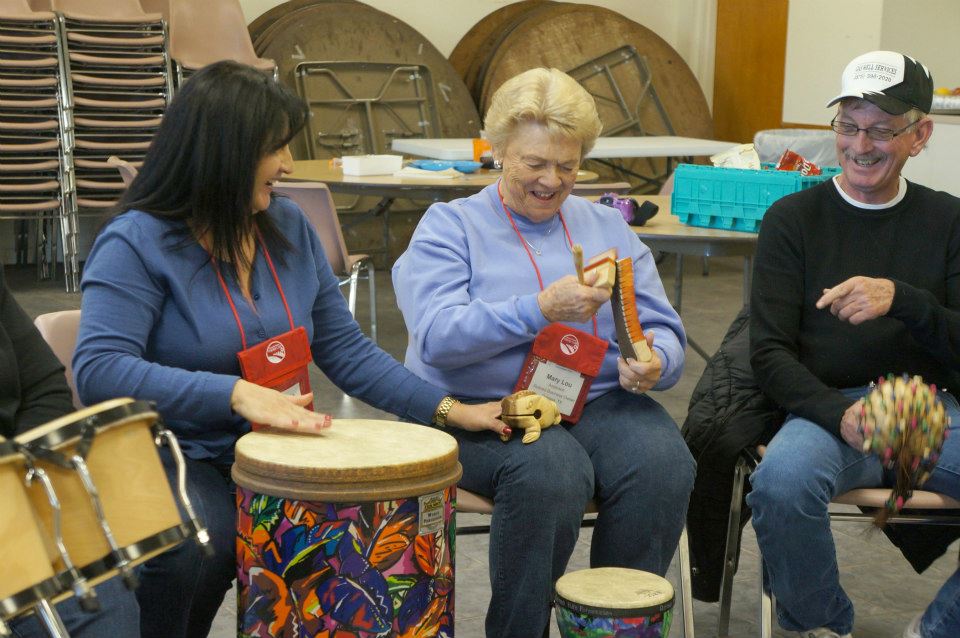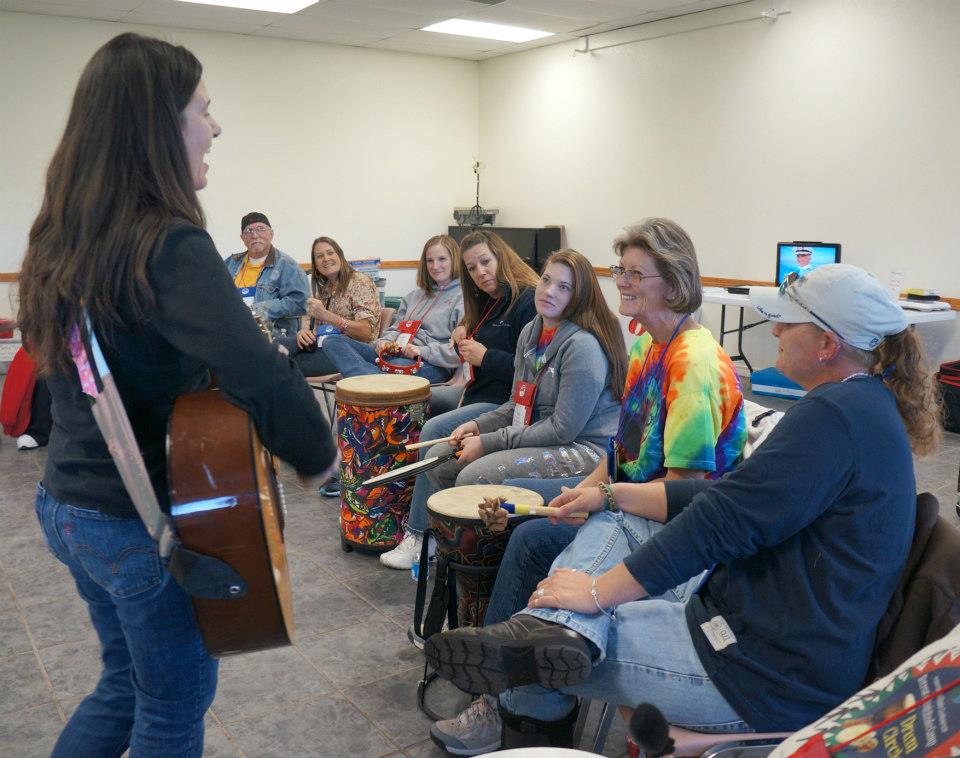Click the Enrollment Tab to request a music therapy evaluation.
Download the Music Therapy Intake form (below) and email it to [email protected] to fast track the evaluation process.
Download the Music Therapy Intake form (below) and email it to [email protected] to fast track the evaluation process.
Music Therapy is using music as a tool to help individuals/groups achieve their personal, non-musical goals within a therapeutic relationship. It’s is an ongoing, therapeutic service in which a Board Certified Music Therapist and a client (or group) develop a relationship through music in order to accomplish and continually assess progress in non-musical goals in areas such as improve social/emotional states, increase communication, develop/improve fine and gross motor skills, improve academics, improve quality of life, and others.
Tonya S. Blum is a Board Certified Music Therapist with experience in public and private schools, multi-therapy clinics, mental health/substance abuse care, Day Habs for adults for with IDD, senior centers/dementia care, and private homes. Her work has brought her many years of joy in music making while helping clients work toward their personal goals, such as improving communication, increasing fine and gross motor skills, improving social/emotional states, increasing academic knowledge, increasing coping/relaxation skills, improving quality of life, and others.
Scroll down for more information on what Music Therapy is and what it's not.
Scroll down for more information on what Music Therapy is and what it's not.
Private Music Therapy Session
Music therapy sessions tailored to the client's personal goals and needs.
After the Initial Assessment to determine music strategies and short term objectives for your goals, sessions can be scheduled weekly or monthly.
Sessions: $75/hour
Initial Assessment: $140, includes a client and/or family interview to discuss personal goals and objectives to be addressed during music therapy followed by a music experience to determine your music preferences and the strategies that will be used to achieve those goals. Clients receive a full detailed report of music strategies to be used and objectives to be addressed during sessions. Subsequent reports are included in the hourly rate.
After the Initial Assessment to determine music strategies and short term objectives for your goals, sessions can be scheduled weekly or monthly.
Sessions: $75/hour
Initial Assessment: $140, includes a client and/or family interview to discuss personal goals and objectives to be addressed during music therapy followed by a music experience to determine your music preferences and the strategies that will be used to achieve those goals. Clients receive a full detailed report of music strategies to be used and objectives to be addressed during sessions. Subsequent reports are included in the hourly rate.
Music Therapy Groups
Music Therapy and Music Classes are not separate in this studio. All classes are designed so students of all abilities can have fun learning music together no matter their current level and achieve progress in age appropriate developmental skills (such as improving communication skills, increasing fine and gross motor skills, improving social/emotional states, increasing academic knowledge, increasing coping/relaxation skills, improving quality of life, and others).
Music Therapy Services include Family Music Classes, Private Music Therapy sessions in the studio, and Music Therapy groups in the community:
Family Music Classes for infants, toddlers, & preschoolers are open to children of all abilities:
Music & Mindfulness for Families or for Adults
Music & Reminiscence - for Seniors
A 60 minute group at your senior center or residential care home for seniors with Alzheimer's/dementia. Sessions are designed with music strategies intended to improve your group's mood and quality of life as well as encourage reminiscence among group members. Other goals may include increase communication, maintain motor skills, maintain connections, and others.
Music & Exploration - for children and adults with intellectual/developmental disabilities and/or other needs.
A 60 minute group at your facility designed with age appropriate music and fun activities for the group to explore personal connections and age appropriate developmental skills through music. Private sessions can be schedule in the studio.
Music Therapy Services include Family Music Classes, Private Music Therapy sessions in the studio, and Music Therapy groups in the community:
Family Music Classes for infants, toddlers, & preschoolers are open to children of all abilities:
Music & Mindfulness for Families or for Adults
Music & Reminiscence - for Seniors
A 60 minute group at your senior center or residential care home for seniors with Alzheimer's/dementia. Sessions are designed with music strategies intended to improve your group's mood and quality of life as well as encourage reminiscence among group members. Other goals may include increase communication, maintain motor skills, maintain connections, and others.
Music & Exploration - for children and adults with intellectual/developmental disabilities and/or other needs.
A 60 minute group at your facility designed with age appropriate music and fun activities for the group to explore personal connections and age appropriate developmental skills through music. Private sessions can be schedule in the studio.
Why is it important to distinguish between Board Certified Music Therapists and bedside musicians who play to make people feel better?
As a music therapist, I applaud all musicians who wish to bring music to people at vulnerable times in their lives. Please continue this very important service but also remember when marketing, that music therapy is distinguished by the ongoing relationship between a therapist and client(s) that allows them to work toward long-term goals. Board Certified Music Therapists evaluate the strengths and needs of a client as well as their musical preferences BEFORE beginning any music interventions. We do not come with our own prearranged playlist to sing as people sit back and relax...well, sometimes we do that too but only if that program is appropriate for the client(s) to achieve their personal goals.
The evaluation helps the music therapist and client determine which long-term goals to work toward, the short-term objectives to use as road-maps to get there, and the music interventions they will use to accomplish those goals and objectives. Music Therapists document each session and constantly evaluate whether music interventions are actually working to accomplish the client's goals. Musicians that play for comfort are wonderful and needed but they are not taking documentation on the interventions or evaluating their effect on clients over time.
Music Therapists hold a Bachelor's degree or higher in music therapy from an American Music Therapy Association (AMTA) approved program and have (at minimum) the entry level credential, MT-BC to ethically practice as a music therapist. Curriculum includes music theory and performance, music therapy, biology, psychology, social and behavioral sciences, and at least 1200 hours of required fieldwork including an internship in healthcare and/or education.
The evaluation helps the music therapist and client determine which long-term goals to work toward, the short-term objectives to use as road-maps to get there, and the music interventions they will use to accomplish those goals and objectives. Music Therapists document each session and constantly evaluate whether music interventions are actually working to accomplish the client's goals. Musicians that play for comfort are wonderful and needed but they are not taking documentation on the interventions or evaluating their effect on clients over time.
Music Therapists hold a Bachelor's degree or higher in music therapy from an American Music Therapy Association (AMTA) approved program and have (at minimum) the entry level credential, MT-BC to ethically practice as a music therapist. Curriculum includes music theory and performance, music therapy, biology, psychology, social and behavioral sciences, and at least 1200 hours of required fieldwork including an internship in healthcare and/or education.
Music Therapists work in a wide variety of places including schools, medical and psychiatric hospitals, senior homes, Alzheimer's centers, physical therapy clinics, drug rehab facilities, outpatient centers, day-stay facilities, counseling services, senior centers, and others. Often a music therapist will specialize in one or two of these areas.
Who Benefits From Music Therapy?
Research has shown music interventions benefit people of all ages and populations, including those who may have:
Developmental, Intellectual, and/or Learning Disabilities
Alzheimer's Disease and/or Dementia
Early Childhood Intervention Needs
Speech Impairments
Neurological Impairments
Traumatic Brain Injuries
Physical Disabilities
Substance Addictions
Visual Impairments
Anxiety, Depression, or other emotional disturbances
Developmental, Intellectual, and/or Learning Disabilities
Alzheimer's Disease and/or Dementia
Early Childhood Intervention Needs
Speech Impairments
Neurological Impairments
Traumatic Brain Injuries
Physical Disabilities
Substance Addictions
Visual Impairments
Anxiety, Depression, or other emotional disturbances
Examples of Music Therapy
|
Here are a few examples of people working over a period of time with a music therapist on non-musical goals:
Music Therapy and Autism Spectrum DisorderThis information is taken from the American Music Therapy Association's website. Click HERE for references.
Over the past seven decades numerous anecdotal case studies, narrative reviews (e.g., Reschke-Hernández, 2011) and systemic reviews (e.g., Geretsegger, Elefant, Mössler, & Gold, 2014) describe the benefits of music therapy for individuals with ASD Currently, music therapy is identified as an emerging intervention by the National Autism Center (2015). The following research-based examples demonstrate the value of music therapy for those with ASD:
|
Music Therapy and Young ChildrenThis information is taken from the AMTA website. Click HERE for references.
How Does Music Therapy Make a Difference with Young Children?
|
Music Therapy and Alzheimer's/DementiaThis information is taken from the AMTA website. Click HERE for references.
Music therapy treatment is efficacious and valid with older persons who have functional deficits in physical, psychological, cognitive or social functioning. Research results and clinical experiences attest to the viability of music therapy even in those who are resistive to other treatment approaches. Music is a form of sensory stimulation, which provokes responses due to the familiarity, predictability, and feelings of security associated with it. Music therapy provides opportunities for: Memory recall which contributes to reminiscence and satisfaction with life Positive changes in mood and emotional states Sense of control over life through successful experiences Awareness of self and environment which accompanies increased attention to music Anxiety and stress reduction for older adult and caregiver Nonpharmacological management of pain and discomfort Stimulation which provokes interest even when no other approach is effective Structure which promotes rhythmic and continuous movement or vocal fluency as an adjunct to physical rehabilitation Emotional intimacy when spouses and families share creative music experiences Social interaction with caregivers and families |

